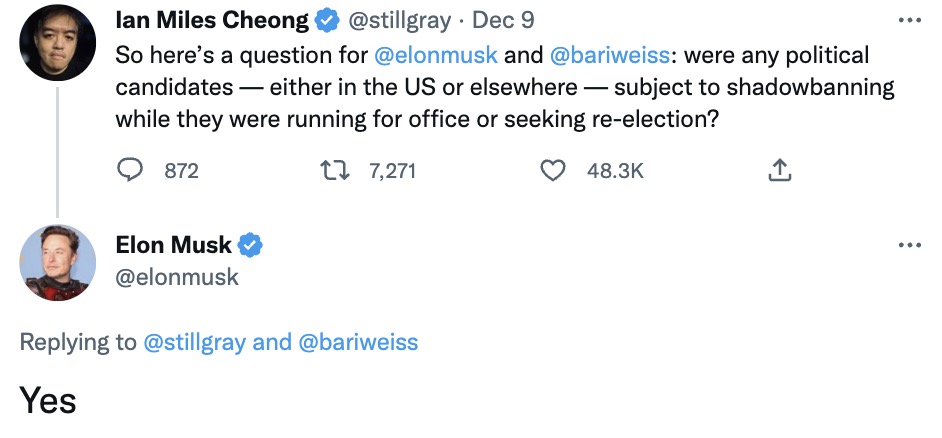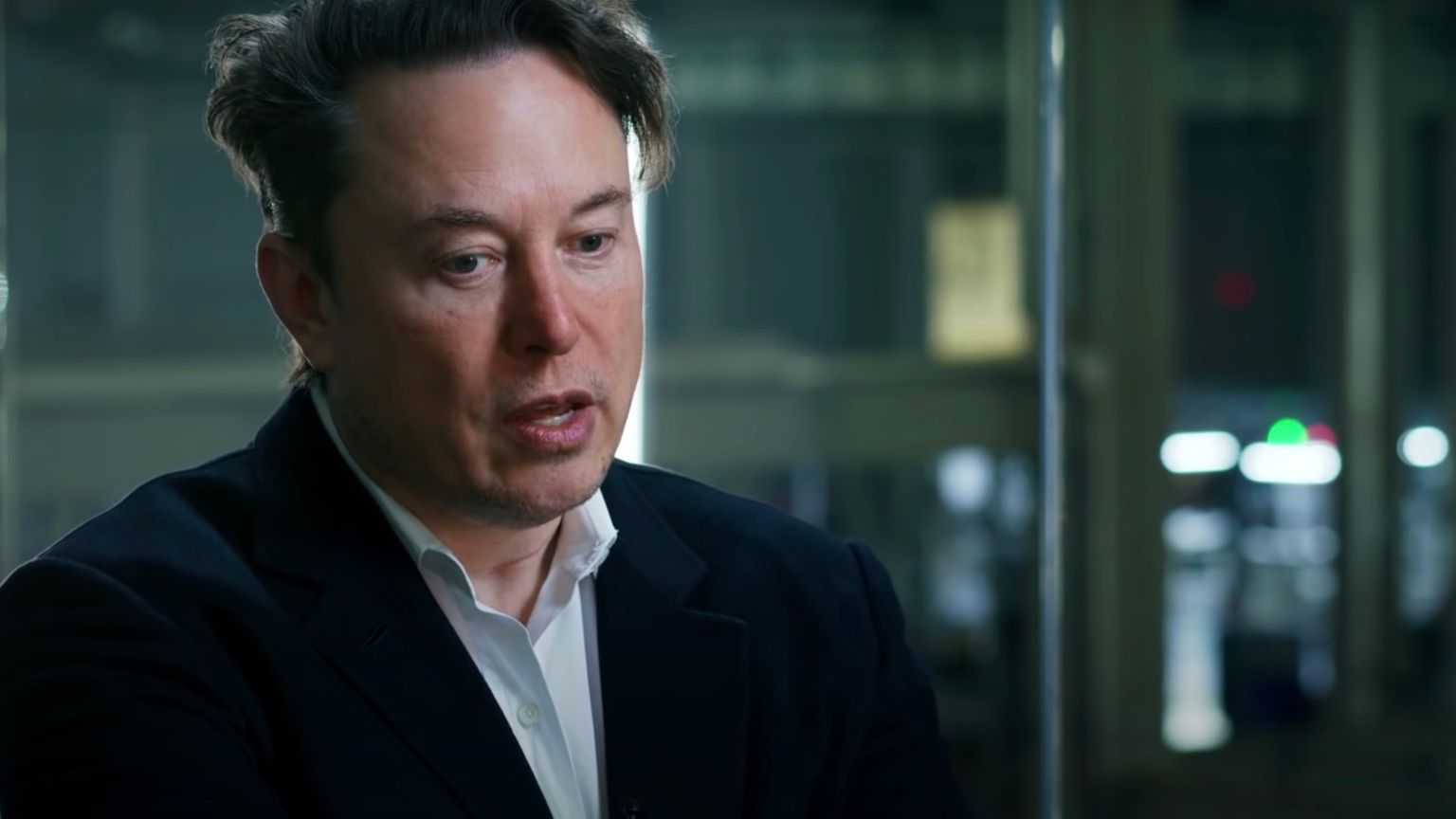On Friday, Elon Musk confirmed that under previous leadership, political candidates were blacklisted on Twitter. In 2018, Twitter executives testified that the platform did not “shadow ban” people.
On Wednesday, journalist Bari Weiss published the second batch of “Twitter Files,” which showed that “teams of Twitter employees” built blacklists that were used to limit the spread of content.
People have always suspected that some users are shadow banned but Twitter has never been transparent about it and never tells users when they’re being suppressed. The documents obtained by Weiss showed that Twitter used “visibility filtering” to “suppress what people see to different levels.”
Weiss mentioned some of those who were added to the blacklists, including conservative commentators Dan Bongino and Charlie Kirk, Dr. Jay Bhattacharya, and Libs of TikTok. She did not say whether or not politicians were among those that were blacklisted.
Reporter Ian Miles Cheong asked both Musk and Weiss, “were any political candidates – either in the US or elsewhere – subject to shadowbanning while they were running for office or seeking re-election?” Musk responded, “Yes.”

Testifying before Congress in 2018, Twitter executives denied that users were suppressed based on political views.
“To be clear, our behavioral ranking doesn’t make judgments based on political views or the substance of tweets,” said Kayvon Beykpour, the former head of product.
“We don’t shadow ban, and we certainly don’t shadow ban based on political viewpoints. We do rank tweets by default to make Twitter more immediately relevant (which can be flipped off),” said former CEO Jack Dorsey.













